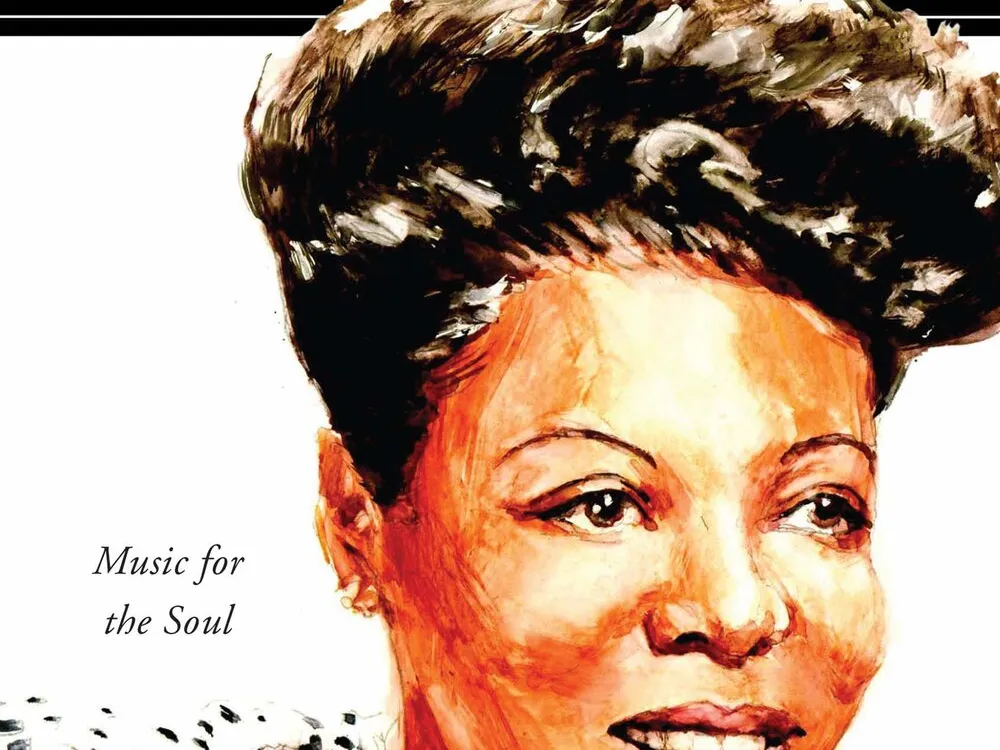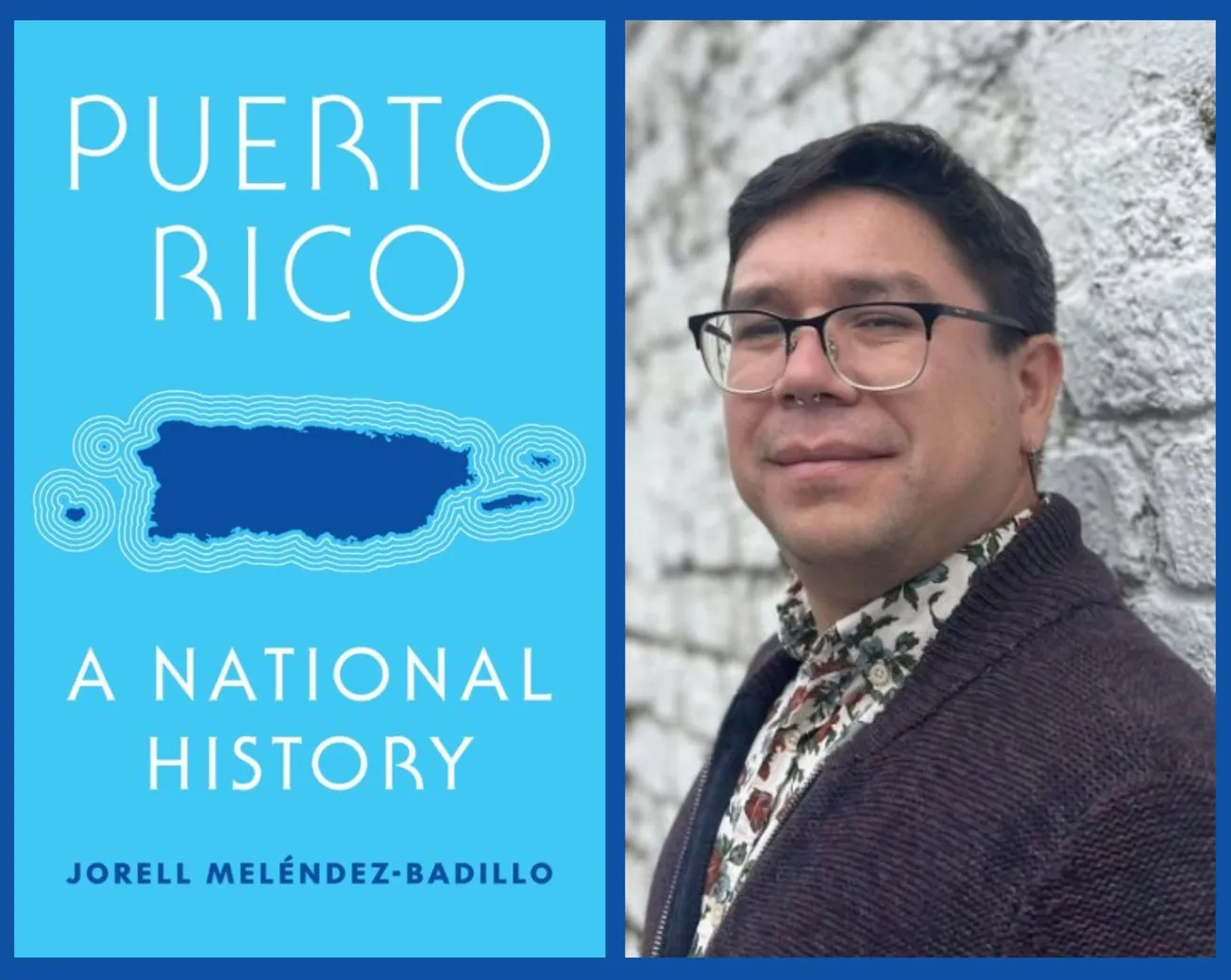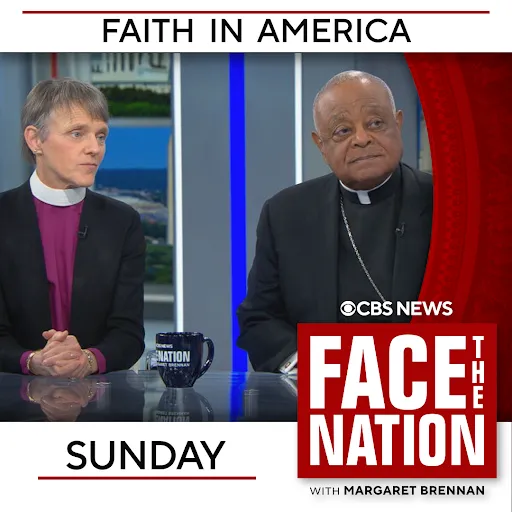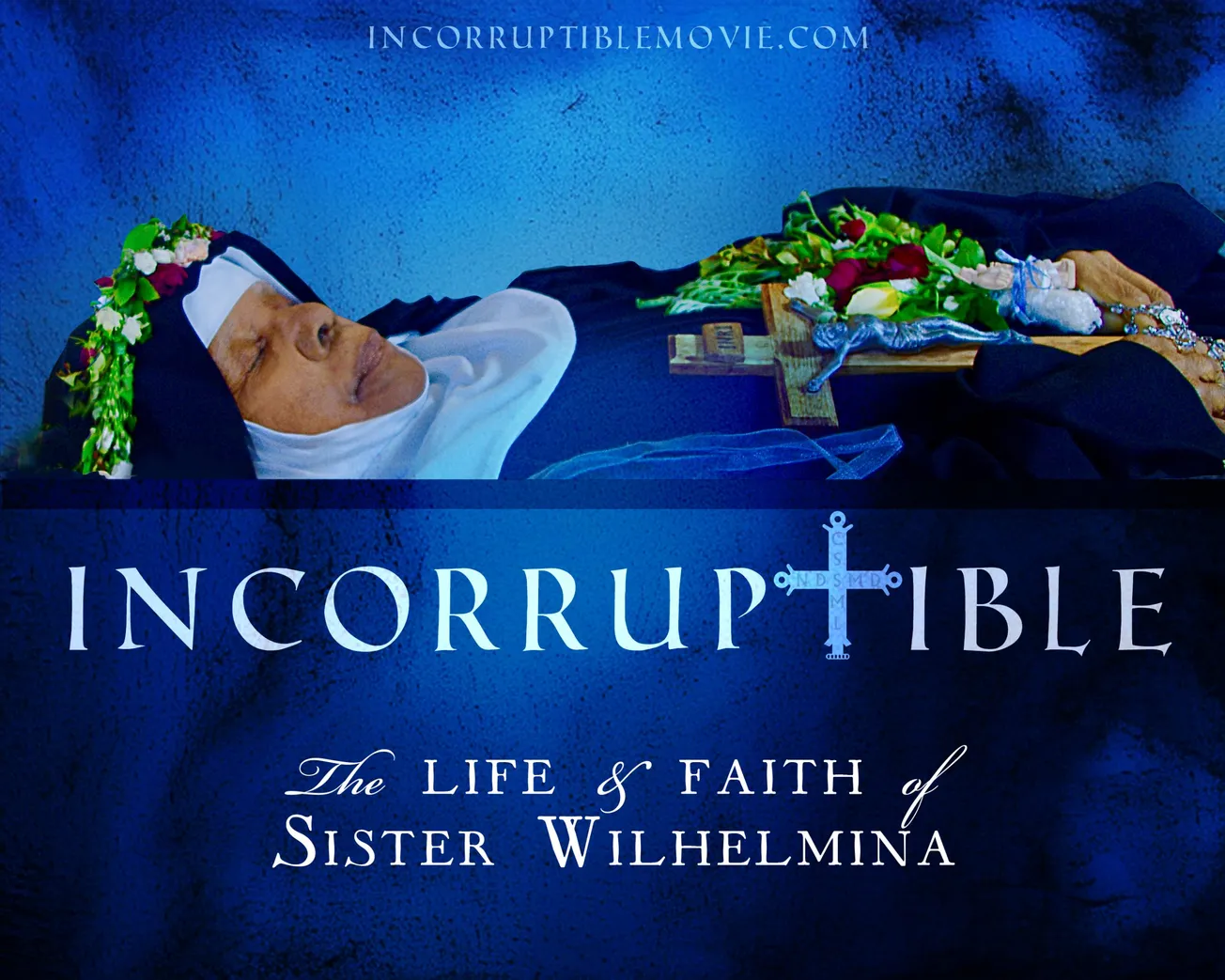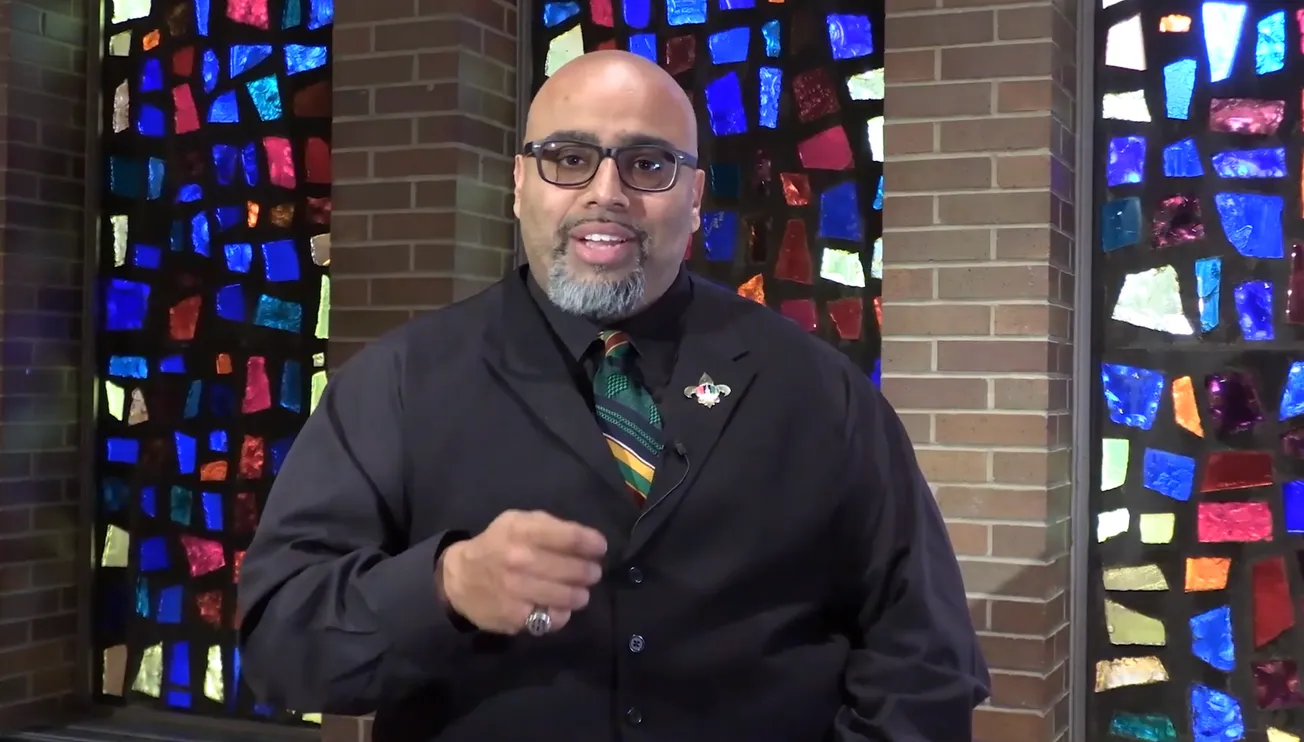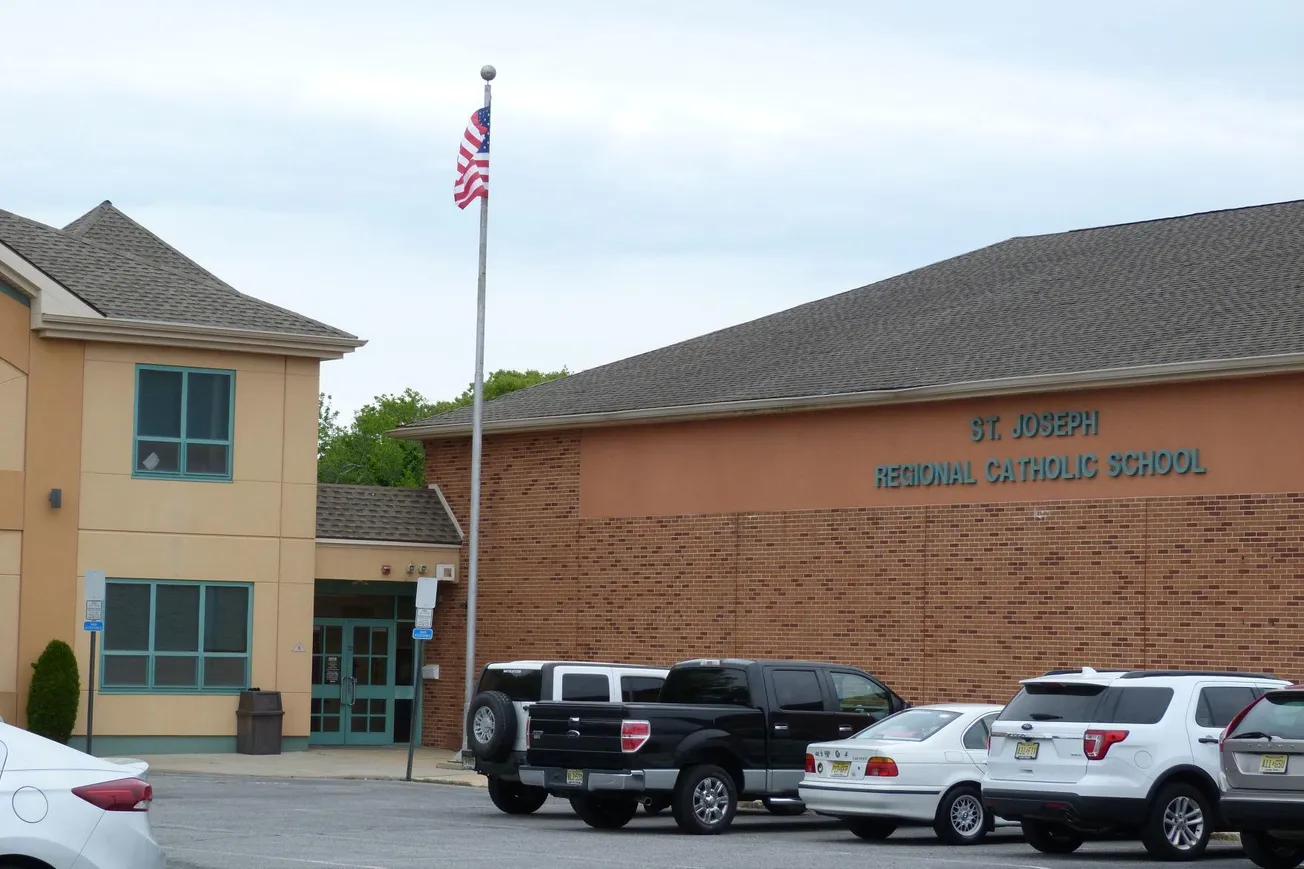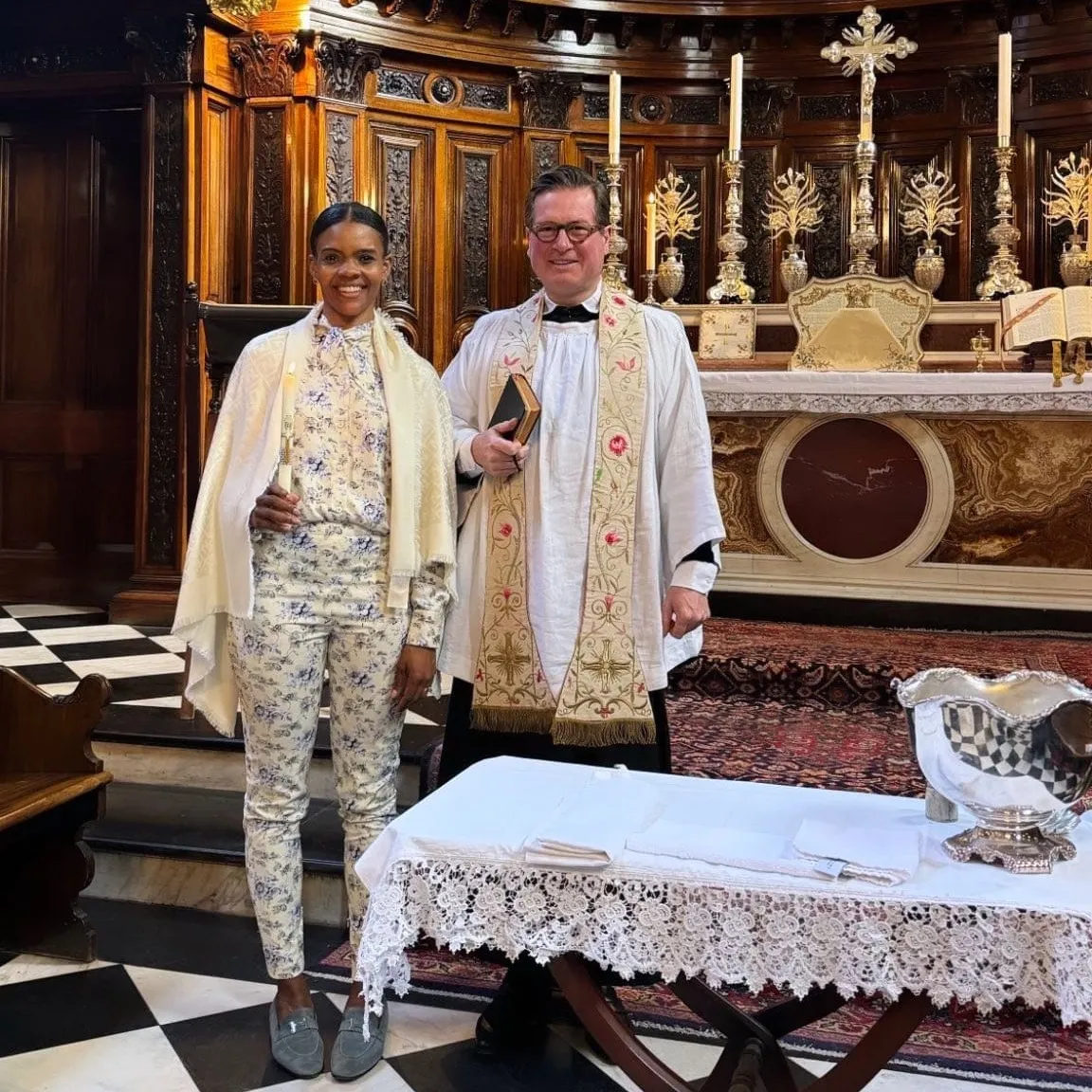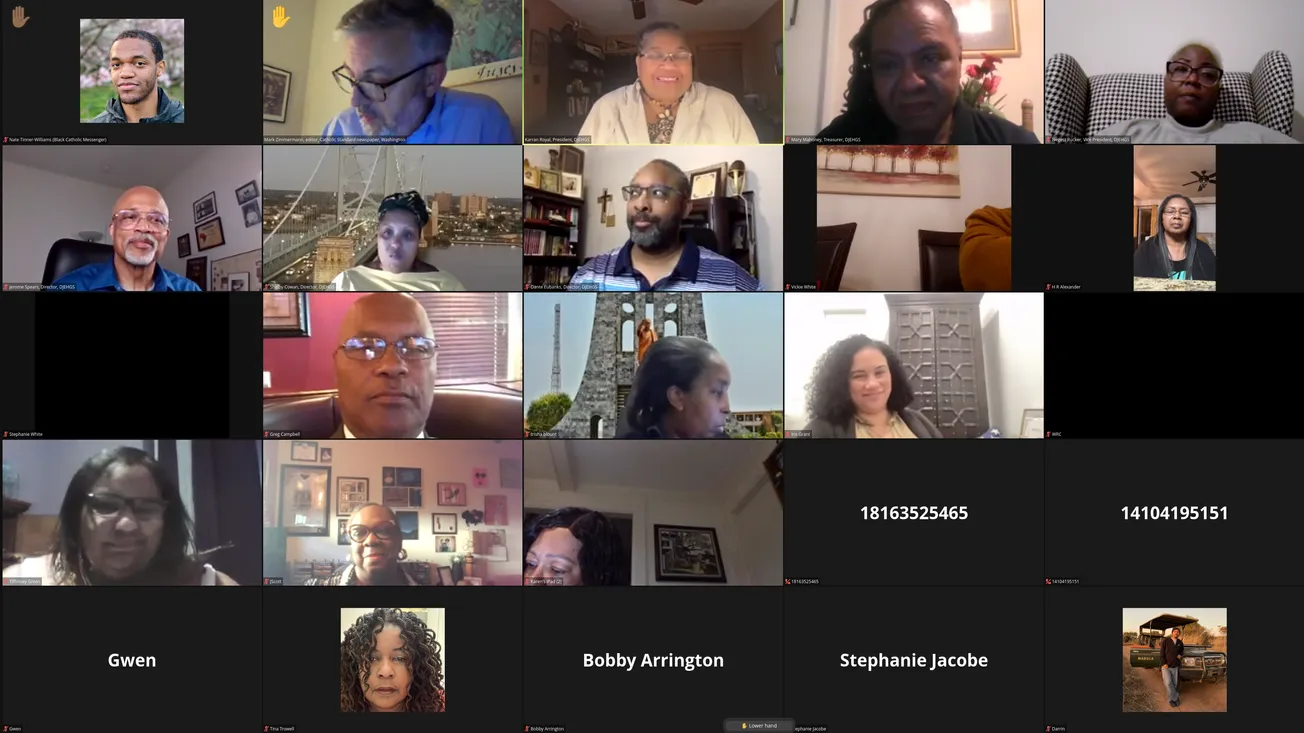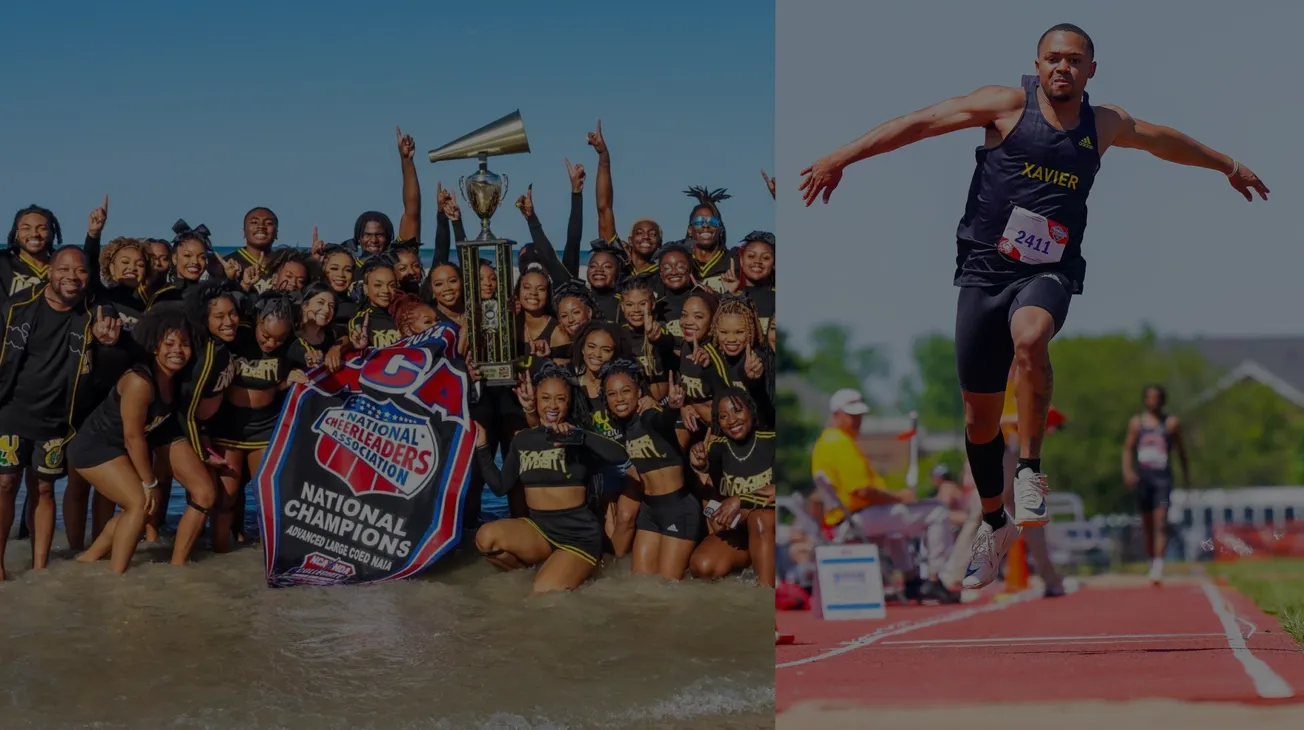Editor’s note: Jazz virtuoso Deanna Witkowski, an upstate New York native and recent Pittsburgher, has been combining Catholicism and jazz for years as a performer, writer, composer, and lecturer. Her new book, “Mary Lou Williams: Music for the Soul”, covers the life of one of her major inspirations and is part of Liturgical Press’ “People of God” biography series dating back to 2014.
She sat down with BCM last week to talk about the new work, as well as her spiritual and musical journey alongside Williams and others.
(The interview has been edited for length and clarity.)
Nate Tinner-Williams: How far back was the manuscript in the works?
Deanna Witkowski: Liturgical Press approached me in the spring of 2018 and I was in Bahia, Brazil, for a project that I actually ended up putting aside for a while to do the Mary Lou book.
NTW: Okay.
DW: It’s an Afro-Brazilian project. I interviewed a lot of women who have devotion to Mary, different manifestations of Mary that are specific to Brazil. So anyway, I was working on that when I was approached about the book, so I set the Brazilian project aside.
I had been playing Mary Lou Williams's music since like 2000. [Liturgical Press] found me online; I think they heard a piece on NPR about Mary Lou—I call her Mary Lou—and they were just looking for information about her and somehow they found my stuff on my website. And I think they read some of the blog posts I had written about my journey with Mary Lou.
So I started working on the book after I came back from Brazil, like that fall, but really more intensely working on it in 2019 and the first half of 2020.
NTW: I see. I want to talk more about that journey that you've had finding Mary Lou, which I assume comes from this kind of double devotion you have to Catholicism and to jazz. Is that accurate?
DW: Yeah, I mean, I don't know that I would say that I found Mary Lou specifically because of devotion to Catholicism. I’m an adult convert but I grew up, like, as a practicing Christian. I moved 11 times growing up and we always went to church, but we didn't stay within the same denomination. So it's been pretty interesting for my own work now, because I do so much liturgical jazz in churches of many different denominations—not just Catholic churches. It’s actually been the Protestant churches that are more open to it.
NTW: I’m not surprised!
DW: Yeah, but one of the first things that definitely attracted me about Mary Lou was—I remember when I started getting into her music because I was invited to play at the Kennedy Center with the Mary Lou Williams Women in Jazz Festival in 2000. I didn't know any of her music, so I felt like I better learn if I'm playing at a festival dedicated to her.
There was a new biography that had just come out about her, and it was actually through that biography that I learned about all the sacred music she had written. And I had just written my first Jazz Mass setting at an Episcopal church where I was at in New York. So that was kind of the first thing that drew me into her story.
NTW: Were you already Catholic?
DW: Not at that point, no. So that would have been like 2000, and I converted in 2009.
NTW: Did Mary Lou play a factor in that?
DW: You know, I would really have to say no. It doesn't make for a good story, but—
NTW: It's the truth.
DW: I mean, kind of what happened was I was working at another Episcopal church in Queens and I left my job. There was some stuff that was just really stressful and I decided I just couldn't stay anymore. Yeah. And I felt like I needed to go on some kind of a retreat or something.
I had just picked up this book on Ignatian spirituality by a woman named Margaret Silf. I picked that up at a conference at Calvin College.
NTW: Of all places.
DW: Yeah! So I Googled her name, and it was like, oh, she lives in England but in three weeks she's coming to the states and she's leading a retreat in upstate New York.
And I ended up meeting somebody on that retreat who later became my spiritual director. She told me about this church in New York where Mary Lou went: Saint Francis Xavier, a Jesuit parish. And she told me they had this lay spirituality program there. It was like a 13-month program, and then we went on a week-long silent retreat altogether as a group.
So anyway it was kind of like through those things in practices that I decided that I wanted to convert, and then of course I did RCIA and everything.
NTW: So I guess your journey towards Catholicism did kind of intersect with Mary Lou.
DW: Yeah! Mary Lou really came to Catholicism through the Jesuits, you know. She talks about her friend Baruch “Barry” Ulanov, who was a jazz writer and critic. He was raised Jewish and he converted to Catholicism as an adult.
When Mary Lou was having the beginning of her spiritual journey—not that she wasn't having one before, but one where she was paying attention to it and trying to figure out where she wanted to land—Ulanov was one of the people that she spoke with. In fact, he became her sponsor.
And he directed her to Fr Anthony Woods, SJ, who was the parish priest at SFX, and also for a while was at St Ignatius Loyola. And there were many other Jesuits in New York who were a part of her path.
NTW: That's beautiful. So your similarities with her journey are multifaceted.
DW: Yup.
NTW: And I'm sure Liturgical Press didn't know all of this when they approached you.
DW: Well they knew some of it because I had written a couple of online articles talking about how I had initially found Mary Lou's music, and my path, and some parallels we shared. I think there's more of it in the beginning of the book, in the acknowledgments and the intro. This wasn’t an assignment where I didn't know anything about her until it was written, that’s for sure.
NTW: So in the process of writing the manuscript, and in your association with spaces where she had been, were you able to speak with people that knew her?
DW: Not very much, because—so, she was born in 1910 and died in 1981. So I've met people who heard her perform. And I've met a few people who were in the choirs she would form when she did “Mary Lou's Mass” at different parishes, but I haven't really met people who knew her super well.
I would say the person who knew her the most, whom I did interview for the book, was Fr John Dear, one of her students while she was teaching at Duke University, like in the very late 70s. He had volunteered to go to the local hospital, where he didn't even know that Mary was at the time.
After a certain point, he was bringing her Communion in the hospital. Her name had shown up on his list of people to visit and he had, you know, taken this History of Jazz class with her and was already really enamored of her and her presence and her music and everything.
NTW: Naturally.
DW: Yeah, so I talked about that in the book a little bit. The class was the first year that she was teaching at Duke and it was a large seminar class, in an auditorium, and he describes the moment when she walks in the door. She's late, so the students are waiting, and then when she gets there, she's dressed head-to-toe in a long, full-length black dress with a black papier-mâché rose on.
NTW: Oh boy.
DW: Yeah, and he says she walks in very regally, she doesn't say anything, and everyone gets completely quiet and then she just sits down. And there's a piano in there. So she sits down at the piano and just says something like “Jazz is love.” And then she plays.
I think what she probably did was a version of her “History of Jazz” concerts where she plays a bunch of different styles from different areas of jazz. But basically, that's all she did in that class period. And then she left.
NTW: Incredible.
DW: So he says everyone was just spellbound and you could have heard a pin drop, you know. So yeah. He loved Mary Lou and he considered her like—he said that he met Mother Teresa, and he feels like they were on the same plane.
NTW: Wow. I guess that means someone will need to contact Cardinal Dolan soon about opening up a cause for canonization.
DW: Maybe... Maybe.
NTW: Or better yet, in Pittsburgh! Bishop Zubik might actually do something like that.
DW: A couple years ago, before I moved here to Pittsburgh, I taught a three-day workshop on Mary Lou. They had something called like—I mean, it was a very generic name like the “Summer Institute”. It was mostly teachers at different Catholic schools that would sign up for various tracks. So one of them was on Mary Lou, and they asked me to teach it. I had like four people in my group, but they were very enthusiastic.
NTW: Absolutely. As they should be.
DW: And I will be actually doing an event at the end of October, at Sacred Heart Catholic Church, which was recently merged to form St Jude. I'm doing a performance of “Mary Lou's Mass”, aka “Music for Peace”, with like 12 singers and an instrumental jazz quartet.
NTW: I did see that on your website. So is that part of a larger tour?
DW: No, but I'm working with a couple of other people on booking more concerts in that kind of vein. I'm doing another big Mary Lou choral concert next March in New York with the Stonewall Chorale. Mary Lou wrote three mass settings, and we’ll be doing her second one, called “Mass for the Lenten Season”, which has rarely been done since it was written in 1968. There's no available commercial recording of it.
NTW: Yeah I haven't heard of it.
DW: I also have been working on creating the new performance edition of the sheet music for “Mary Lou's Mass”, because groups can actually license that music online for performance, but there were a lot of things that needed to be edited a little bit. So I've been working on that for the Mary Lou Williams Foundation.
NTW: Could you tell me more about that foundation?
DW: Sure. So, Mary Lou started a foundation in about the last year of her life. She really wanted to reach young people, so basically, she was trying to get educational initiatives happening in schools. She was always volunteering to play in schools, and so she set up this foundation to try to get jazz more into schools.
I'm not sure that the foundation has been terribly focused on that necessarily since, but the main thing that they've done—I'm not on the board or anything, so I'm not an insider at all—is that they’ve sponsored certain recordings over the years of Mary Lou’s music.
One of the main things they do is on their website, where a lot of her pieces are listed so that musicians or ensembles that want to do those pieces can pay for licenses to do them in performance.
The project that I'm working on is specific to her third Mass setting, and I've worked with choirs before where every time we would do a performance, there were things that had to be changed, decisions that had to be made that shouldn't have to be made after you buy the score. So I've been working on that, with the perspective of someone who understands what needs to be in the choral score and someone who understands what, say, a church music director but not necessarily jazz player needs to see on the piano score, and vice versa.
NTW: So it seems like your journey with Mary Lou has been musical, literary, and even spiritual. So I'm wondering: in Pittsburgh, what has that exploration of her life looked like? The time you've been able to spend in Pittsburgh researching the book.
DW: I forgot this earlier, but one of her grandnieces is still here: Bobbie Ferguson. So I have spent time with Bobbie, just asking her questions, and she drove me around to different places before I moved here. So I could see where she lived or where her relatives live when she came back to visit, because she came back a lot even though she lived most of her adult life in Harlem.
The first time I came to Pittsburgh—and this was when I had been working on the book some but not super intensely, in like December of 2018—I had a solo performance book here at a performing arts center and since I knew Mary Lou was from here and I thought ‘Well, OK, I know one person in Pittsburgh, so I'm gonna come a week-and-a-half early and just try to get to know the city a little, or the musicians, or see what I can find out about Mary Lou.’
And so I contacted the diocese through a friend and what I was trying to find out was—you know, Mary Lou help found the first Pittsburgh Jazz Festival in 1964 and that was actually through a business partnership with the diocese.
NTW: Yeah.
DW: So I thought that there's got to be some newspapers, even diocesan newspapers, that had some coverage of this. So I went asking and I found out that that there was a big event on her sacred music happening two days later at the University of Pittsburgh. Long story short, I ended up filling in for the keynote speaker on five hours’ notice.
It was crazy, but in those 9 or 10 days when I was here, I think the main thing that I got and then I still feel from Pittsburgh is that Mary Lou’s music and her spirit is very welcoming. And she was very much trying— especially, I think, in her sacred music—to bring different communities together.
Like, she created, like, simplified piano and vocal scores so that other church musicians could play the music in their parishes and she wouldn't necessarily have to physically come to that parish herself to do it. I mean, that's something I do with my own sacred music too. I always write out full piano scores even though it's really a labor. I hate doing it, but I do it because then other people can use it.
I think Mary Lou always felt most at home in Pittsburgh in some ways, you know, from like what her grandniece has told me, but I think she always had this very inclusive and welcoming spirit in her music and in her working with, like, kids in the choirs she would form to sing “Mary Lou's Mass”.
There was just a sense that this music belongs in Church and so that meant that she had to make a lot of adjustments to be able to do it with different groups of people of varying abilities. But she did it.
NTW: How does the work that she did live on there in Pittsburgh now?
DW: Well, I have to say that I think with the book coming out, I think there's going to be more people here knowing about her. There is a general sense of her already, though. Like, I see murals of Mary Lou in different parts of Pittsburgh, and there's a lot of people who know her name and they know she was from here. And there's like a part of the Heinz History Center here, which is a Smithsonian museum, that actually has her old piano from her apartment in New York.
NTW: My goodness.
DW: Seriously. A beat-up, Baldwin piano with like—you can actually see there are stains from cigarette buds on some of the keys. I mean, you can actually see it. It was pretty amazing to see.
NTW: Absolutely.
DW: But in the city, there's not a sense of people knowing even her story or her music. So to me, it's like, well what good is that, you know? So I feel like I'm carrying her legacy on, you know. Definitely.
And I can think of a couple of musicians here who play a couple of her tunes, but honestly, I think a lot of people don't know really who she was or what her music was here. They think of her in relation to other musicians. Jazz fans will know her early big band arranging she did when she was on the road for 12 years with Andy Kirk and His Twelve Clouds of Joy, but then they don't know her compositions outside of that period.
And she had a very long career, like 60 plus-year career. And I think that a lot of people have maybe heard of “Mary Lou's Mass”, but again, that's because that's the one you can go to iTunes and find.
NTW: So there's work to do.
DW: Yeah, and there are also certain tropes that happen, like she gets talked about as, you know, a mother to all these jazz musicians or something, because in the 40s, she had all these more famous musicians than her, like Thelonius Monk, coming to her apartment and doing jam sessions.
But jazz musicians today will all know a lot of Monk tunes and will call them out on gigs to play them. Nobody ever calls a Mary Lou William tune. Because nobody knows any!
I did a record that's coming out in late October, on a record label here called MCG Jazz (Manchester Craftsmen's Guild), and it's all Mary Lou compositions. There's at least one tune on there that I'm like 99.9% sure has not been recorded since she recorded it in 1944.
So part of my goal, too, is for people to actually, you know—
NTW: Know her stuff.
DW: Get to know her music. Because that's, like, that’s the main—
NTW: That's who she was!
DW: And her story is super interesting and everything too, and of course has a lot to do with the music, but—I feel like this happens with her faith journey too: there's a lot of generalizations. The earlier two biographies are great and they're much longer than the People of God books like the one I wrote.
Yeah, but when it comes to talking about her religious faith, or her Catholicism, there's a sense, you know, that she became a religious fanatic and was trying to convert everybody. And, you know, I think she kind of was in a period of really going out and taking musicians to Mass with her and everything, but that's not the only piece of it.
I mean, I've read so many letters. I think all the correspondence she had with women religious, that she kept up for decades, that's a big part of her story that hasn't really been talked about.
NTW: I wasn't aware of that.
DW: Yeah, I think that's how, in general, she got a lot of things happening. She was a very prolific letter-writer and she also just kept asking for things that she felt should be happening. Like when the Pittsburgh Jazz Festival happened, that came out of a concert idea that she had, but seeing the letters back to her from Bishop John Wright, and Fr Michael Williams, who was head of the local Catholic Youth Organization—she really she was someone who, I think, was not afraid to ask for what she felt like needed to happen.
She didn't always get the answer of ‘Yes’ or anything right away, but she really had a vision of what she wanted to see. A very persistent person.
NTW: It sounds like you're uncovering such a treasure trove of information about her that people don't know, whether that's from music or the letters. A lot of people in the Church in the US know that she was this famous Catholic convert and incredible jazz musician, but I'm glad that you're, you're taking it that extra step and telling the whole story.
And I’m wondering about the Pittsburgh Jazz Festival. Is that still going on?
DW: So there is a Pittsburgh jazz festival now, but it's not the same one. The original one had been gone for quite a while. Mary Lou, after the second year, she wasn't really involved, but it was still a project sponsored by the diocese here. The Pittsburgh International Jazz Festival which they have now I think started maybe six or seven years ago.
I actually tried to see if they had any archival programs from the 64 or the 65 festival, but they didn't. I still think they've got to exist somewhere.
NTW: You would think, yeah. Anyway, that's all incredible information.
So where's the best place for readers to buy your book?
DW: People can either go to my special link which takes you directly to the page for ordering a signed copy from me, or people can just go to deannajazz.com because the link is right there on the homepage.
For those who want the ebook, they can buy directly from Liturgical Press.
NTW: Well, I'm excited for you! I love Catholic jazz. I have loved listening to your YouTube tutorials. They’ve been incredible. And I'm excited about your new music as well.
DW: Thank you.
NTW: I very much appreciate you taking the time to speak with me.
“Music for the Soul” is out now in ebook format and pre-orders are available for the paperback, scheduled to be released on September 15th. (Also consider donating to Deanna’s piano fund here!)
Nate Tinner-Williams is co-founder and editor of Black Catholic Messenger, in priesthood formation with the Josephites, and a ThM student with the Institute for Black Catholic Studies at Xavier University of Louisiana (XULA).
Want to support our work? You have options.
a.) give on Donorbox!
b.) create a fundraiser on Facebook



